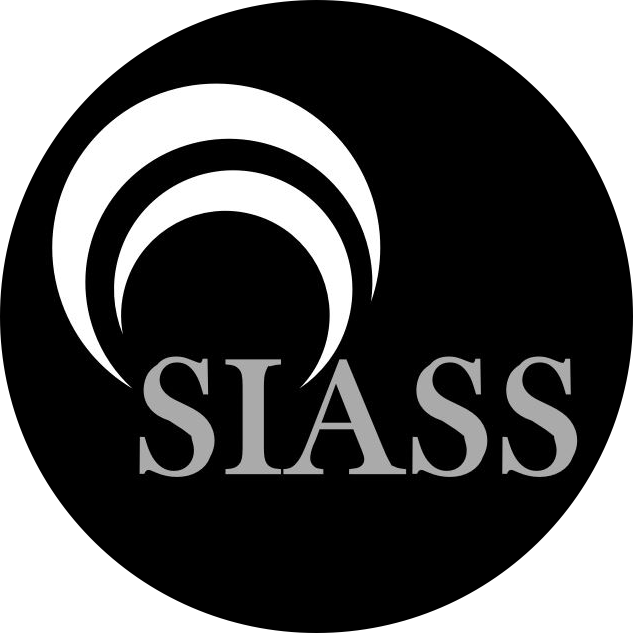Safeguarding Your Privacy in Student Accommodation:
- SIASS

- Oct 20, 2025
- 3 min read
Updated: Dec 5, 2025
What Students Need to Know About Technical Surveillance in University Life
As thousands of new students move into halls of residence or private rentals each autumn, it is an exciting time. New friendships, new routines, and often, the first real taste of independence are all part of the experience. However, alongside this excitement, it is crucial to be aware of serious safeguarding concerns surrounding personal privacy and technical surveillance.
At SIASS, efforts are made to raise awareness of privacy risks and how to respond if there is a suspicion that personal space has been compromised. Understanding what is possible and knowing what actions to take can significantly enhance personal safety and secure vital evidence.
What Do We Mean by ‘Surveillance Devices’?
When discussing technical surveillance, the focus is on the use of electronic devices and techniques designed to secretly observe, record, or track individuals. These devices can include:
Hidden cameras (which can be concealed in smoke alarms, wall hooks, USB chargers, clocks, or other everyday objects)
Eavesdropping or listening devices (planted in walls, plugs, furniture, or other ordinary objects)
Trackers (such as GPS devices or Bluetooth tags hidden in bags, vehicles, or rooms)
These devices are disturbingly affordable and easily obtainable. Reports highlight the prevalence of spy cameras disguised as ordinary home accessories being sold on major platforms such as Amazon (Metro, Dec 2023).
Why This Matters: Real Examples from UK Student Life
Unfortunately, these risks are not hypothetical. Recent cases in the UK have illustrated the seriousness of the problem:
A woman discovered a hidden camera inside her home (Chronicle Live, 2024).
A camera was found under a desk in a university study space in London (The Tab, 2025).
A University of Lincoln student discovered a hidden camera in their house (Lincolnshire Live, 2020).
Such incidents serve as a stark reminder that voyeurs and sex offenders do target young people, particularly in shared or student accommodation.
What Could Happen to Compromised Footage
The most distressing aspect of technical surveillance is the fate of the footage. Images or videos captured in private areas, such as bedrooms, bathrooms, or changing rooms, can be:
Secretly shared or sold online
Circulated on the Dark Web or illicit websites
Used to blackmail or humiliate victims
This is not merely a privacy violation; it constitutes a serious criminal offence.
How to Protect Your Privacy in Student Accommodation
While the notion of being watched without knowledge is deeply unsettling, practical steps can be taken to protect oneself:
Stay alert to your surroundings. Look out for strange objects, unfamiliar lights on devices, or anything that seems out of place.
Utilise free apps that can help detect some tracking devices, such as AirTags, AirPods, or Bluetooth trackers. Apps like Tracker Detect (Android) and Find My (iOS) can alert users to nearby devices that may be following them.
Exercise caution in shared spaces. If moving into new accommodation, take time to familiarise oneself with the layout and fittings, especially in bedrooms and shared bathrooms or changing spaces.
What to Do If You Discover a Device
If a surveillance device is found or suspected:
Do not touch or move it. Leave it exactly where it is.
Document it. Take evidential footage or photos of the device in situ.
Leave the area and call the police immediately — personal safety is paramount.
Refrain from informing others or posting about it online until authorities have assessed the situation; doing so could alert the perpetrator.
Contact the university’s safeguarding or security team for support and to ensure others are protected.
Report it to SIASS. Expert guidance can be provided on securing evidence and understanding subsequent steps.
Request a Technical Surveillance Awareness Briefing
It is strongly encouraged for students and universities to arrange a Technical Surveillance Awareness Briefing from SIASS.
These sessions can be tailored specifically to address privacy in student accommodation and cover:
How technical surveillance attacks operate
What simple steps can be taken to mitigate risks
How to detect and respond safely if a device is suspected
How to preserve evidence for investigation
Knowing how to act — calmly and correctly — is crucial. It ensures that the relevant authorities can investigate thoroughly and apprehend those responsible.
Final Thoughts on Technical Surveillance Awareness
Privacy is a fundamental right. As students embark on their university journeys, remaining aware and informed is one of the most effective ways to protect themselves and their peers.
If there is interest in arranging a Technical Surveillance Awareness Briefing for students, please contact SIASS via the website at www.siass.org.uk.





Comments